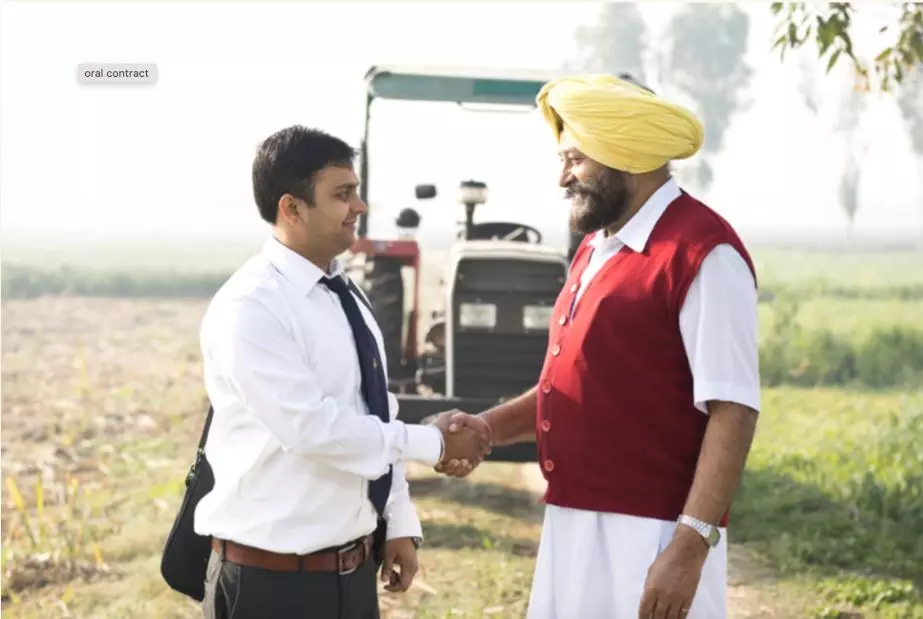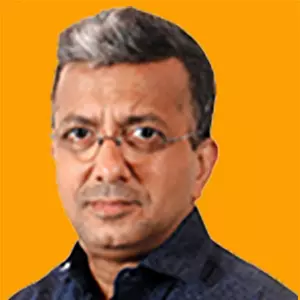
- Home
- India
- World
- Premium
- THE FEDERAL SPECIAL
- Analysis
- States
- Perspective
- Videos
- Sports
- Education
- Entertainment
- Elections
- Features
- Health
- Business
- Series
- In memoriam: Sheikh Mujibur Rahman
- Bishnoi's Men
- NEET TANGLE
- Economy Series
- Earth Day
- Kashmir’s Frozen Turbulence
- India@75
- The legend of Ramjanmabhoomi
- Liberalisation@30
- How to tame a dragon
- Celebrating biodiversity
- Farm Matters
- 50 days of solitude
- Bringing Migrants Home
- Budget 2020
- Jharkhand Votes
- The Federal Investigates
- The Federal Impact
- Vanishing Sand
- Gandhi @ 150
- Andhra Today
- Field report
- Operation Gulmarg
- Pandemic @1 Mn in India
- The Federal Year-End
- The Zero Year
- Science
- Brand studio
- Newsletter
- Elections 2024
- Events
- Home
- IndiaIndia
- World
- Analysis
- StatesStates
- PerspectivePerspective
- VideosVideos
- Sports
- Education
- Entertainment
- ElectionsElections
- Features
- Health
- BusinessBusiness
- Premium
- Loading...
Premium - Events

Technology exists today that can enable oral contracts to be construed as sufficient evidence and, fortunately, it is not rocket science
Disagreements over agreements are rather common, particularly when they are verbal in nature and not written down and authenticated by a competent authority.
Instances of such daily discords are innumerable. A caretaker is hired against the payment of a certain sum of money by an estate agent. But when the month goes by, the pay is less than what was promised. A raging row erupts between the two.
Or, say, a villager decides to sell his cattle to a neighbour. The cattle is taken away against the promise of an agreed upon payment. But the payment isn’t made and the neighbours turn into foes.
Opinion: As chatbots gain muscle, a 6-month pause makes sense; but should we be scared?
One can go on and on, citing more examples of agreements not being kept. They could seem to be small matters involving small amounts. But then they often have the capacity of triggering violence. Haven’t we heard of small disputes resulting in fights and even murders?
To avoid such recurring bad blood, it is important that an arrangement be made available so that even oral agreements can be made binding on the parties involved. Once made available, we all would have to comply with the commitments we make. Our words would carry greater weight and we would become, as they say in Hindi, wade ka pakka (‘a definite promise’).
Immense advantages
It would be a revolutionary step, more so in India with no less than 280 million people who cannot read or write. It would also benefit those working in the unorganised sector with little protection in their respective workplaces. They could be earning paltry salaries, but by recording what had been promised to them, they could ensure they get what is their rightful due. No matter the small sums involved, it is a matter of life or death for them.
So, can oral agreements be recorded and registered in a non-repudiable manner which the judiciary accepts as valid and uses as evidence to settle disputes?
The answer is a resounding yes. Technology exists today that can enable oral contracts to be construed as sufficient evidence and, fortunately, it is not rocket science.
The basic requirements for popular acceptance of audio-visual contracts are already in place though it would necessitate some technological tweaks and some policy interventions. Among everything else, increasing mobile phone and internet penetration has meant that almost everyone in this country has a mobile phone. It means they have the elementary wherewithal to record – both audio and video – of the oral agreements they enter into.
Opinion: Why credit cards are probable victims of the UPI revolution
Law, too, is on their side. Oral contracts under the Indian Contract Act of 1872 are valid forms of contract. But the problem is that in case of a dispute with either of the parties disowning what had been agreed upon, it becomes difficult, if not impossible, to substantiate the agreement.
Caught between ‘my word against his/her word’, coming up with clinching evidence remains an insurmountable challenge.
Audio-visual evidence
Audio-visual evidence of the oral agreements can change things drastically, though successful implementation of this contractual framework from a policy perspective would require certain facilitatory conditions.
To begin with, people need to be made aware that entering into audio-visual contracts is a bonafide means to enter into an agreement that can benefit them immensely.
More importantly, there needs to be a framework for institutionalising such verbal contracts. There has to be a tamper-proof platform where the audio-visual recordings of oral contracts can be stored securely.
Once those recording their oral agreements know how to record them complete with proof of their identities such as their Aadhaar numbers, and where to store them without the risk of them being doctored, the evidence becomes rock-solid. It would become far easier to establish what was agreed upon between the parties.
Of course, the government too will need to play its part. It can designate courts to quickly adjudicate on the digital contracts.
Changing destiny
The benefits of audio-visual contracts are countless. The caretaker equipped with a mobile phone can record the verbal agreement and ensure that the estate agent pays what was agreed upon. The villager too can, with his audio-visual evidence, compel the neighbour to pay what had been originally promised.
Opinion: The psychology of fake news, and the practicality of sifting it out
Audio-visual contracts would rewrite the destinies of those working in the unorganised sector – the millions of men and women who toil hard round the clock in our farms, factories and sundry workplaces only to be routinely cheated. It would also be a boon for those who are unable to read or write – the 25 per cent of Indians categorised as illiterates.
Tech-enabled audio-visual contracts have the potential to address and alleviate much of the ingrained inequalities that saddle our society. Workers and domestic helps will be able to record what is being promised to them and then ensure their enforcement. Audio-visual contracts will certainly be a shot in the arm for many.
(Ruben Banerjee, a journalist and author, is currently the Director at the Centre for Digital Economy Policy Research.)
(The Federal seeks to present views and opinions from all sides of the spectrum. The information, ideas or opinions in the articles are of the author and do not necessarily reflect the views of The Federal)


